Research has shown that certain foods may compromise the quality and quantity of breast milk. Therefore, as a new mother, you should know the foods to avoid while breastfeeding. According to the American Academy of Pediatrics (AAP), breast milk contains several biologically active factors such as epidermal growth factor (EGF). In addition, breast milk contains all the nutrients a baby needs to grow healthy as well as antibodies and hormones to protect the baby against diseases and infections such as pneumonia, diarrhea, and ear infections.
With that in mind, here are ten foods to avoid while breastfeeding in order to retain the natural purity of your breast milk:
Caffeine
 Millions of Americans drink coffee every day. However, as a breastfeeding mother, you should avoid this beverage because it contains high levels of caffeine and is likely to be a problem for your baby's immature digestive system. In fact, an article published by healthyeating.sfgate.com states that breastfeeding women should limit their daily coffee intake to a maximum of three cups. Still, if you notice that one cup of coffee makes your baby agitated, you should stop your caffeine intake completely. Finally, it is probably important to note that caffeine is also present in other foods such as chocolate.
Millions of Americans drink coffee every day. However, as a breastfeeding mother, you should avoid this beverage because it contains high levels of caffeine and is likely to be a problem for your baby's immature digestive system. In fact, an article published by healthyeating.sfgate.com states that breastfeeding women should limit their daily coffee intake to a maximum of three cups. Still, if you notice that one cup of coffee makes your baby agitated, you should stop your caffeine intake completely. Finally, it is probably important to note that caffeine is also present in other foods such as chocolate.
Citrus
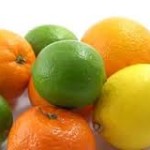 Although citrus fruits are a great source of vitamin C, they also contain high amounts of citric acid and therefore could irritate your baby's gastrointestinal system as well as cause your baby to develop a rash. In addition, some babies are allergic to vitamin C. With this in mind, you should avoid fruits such as lemons, oranges, and grapefruits. Instead, eat mangoes and pineapples, which are also rich in vitamin C.
Although citrus fruits are a great source of vitamin C, they also contain high amounts of citric acid and therefore could irritate your baby's gastrointestinal system as well as cause your baby to develop a rash. In addition, some babies are allergic to vitamin C. With this in mind, you should avoid fruits such as lemons, oranges, and grapefruits. Instead, eat mangoes and pineapples, which are also rich in vitamin C.
Garlic
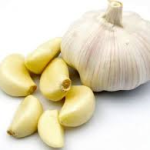 Garlic is a popular food ingredient, not only because of its unique flavor, but also because of its myriad health benefits. Unfortunately, some babies tend to be highly sensitive to it. Additionally, garlic changes the smell and taste of breast milk. To determine if your baby is sensitive to garlic, try to breastfeed the baby after eating garlic. If the baby stops sucking and avoids your breast, then the baby is likely sensitive to garlic.
Garlic is a popular food ingredient, not only because of its unique flavor, but also because of its myriad health benefits. Unfortunately, some babies tend to be highly sensitive to it. Additionally, garlic changes the smell and taste of breast milk. To determine if your baby is sensitive to garlic, try to breastfeed the baby after eating garlic. If the baby stops sucking and avoids your breast, then the baby is likely sensitive to garlic.
Alcohol
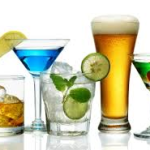 If you breastfeed immediately after drinking alcohol, it will pass on to your baby and cause grogginess, weakness, and even weight gain. To ensure this does not happen, simply avoid alcohol. However, if you do have an occasional drink, you should wait for a few hours before breastfeeding your baby. More specifically, if you take a single alcoholic drink, you should avoiding breastfeeding for four hours. This is according to the United States Department of Agriculture and the American Council on Exercise.
If you breastfeed immediately after drinking alcohol, it will pass on to your baby and cause grogginess, weakness, and even weight gain. To ensure this does not happen, simply avoid alcohol. However, if you do have an occasional drink, you should wait for a few hours before breastfeeding your baby. More specifically, if you take a single alcoholic drink, you should avoiding breastfeeding for four hours. This is according to the United States Department of Agriculture and the American Council on Exercise.
Peanuts
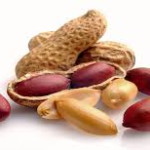 Some people are allergic to peanuts and products that contain this ingredient. Therefore, if your family has a history of peanut allergy, you should avoid eating peanuts and related products while breastfeeding even if you are not allergic to peanuts. What's more, even if your family does not suffer from peanut allergy, you should look out for signs of allergic reactions after eating peanuts and breastfeeding your baby. Some of the common symptoms to look out for include hives, rash, wheezing, and eczema.
Some people are allergic to peanuts and products that contain this ingredient. Therefore, if your family has a history of peanut allergy, you should avoid eating peanuts and related products while breastfeeding even if you are not allergic to peanuts. What's more, even if your family does not suffer from peanut allergy, you should look out for signs of allergic reactions after eating peanuts and breastfeeding your baby. Some of the common symptoms to look out for include hives, rash, wheezing, and eczema.
Wheat
 Gluten free foods are becoming increasingly popular in many developed nations due to the prevalence of gluten sensitivity in those nations. The best way to determine if gluten intolerance is a problem is by selectively eliminating some foods from your diet and observing your baby after breastfeeding. In addition, look out for gluten intolerance symptoms such as fussiness, bloody stool, and a painful tummy. If this is the case, consider eliminating gluten-rich foods from your diet.
Gluten free foods are becoming increasingly popular in many developed nations due to the prevalence of gluten sensitivity in those nations. The best way to determine if gluten intolerance is a problem is by selectively eliminating some foods from your diet and observing your baby after breastfeeding. In addition, look out for gluten intolerance symptoms such as fussiness, bloody stool, and a painful tummy. If this is the case, consider eliminating gluten-rich foods from your diet.
Dairy Products
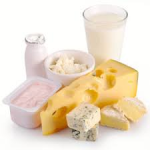 Intolerance to milk and related products is another growing food allergy. Most people with this problem are intolerant to casein, a milk protein. Some babies tend to experience the same problem after their mothers take dairy products, especially milk. Babies who are intolerant of milk products develop symptoms such as sleeplessness, colic, vomiting, and eczema. Once again, you should eliminate such products from your diet and observe your baby after feeding to determine whether you should remove them from your diet.
Intolerance to milk and related products is another growing food allergy. Most people with this problem are intolerant to casein, a milk protein. Some babies tend to experience the same problem after their mothers take dairy products, especially milk. Babies who are intolerant of milk products develop symptoms such as sleeplessness, colic, vomiting, and eczema. Once again, you should eliminate such products from your diet and observe your baby after feeding to determine whether you should remove them from your diet.
Parsley and Peppermint
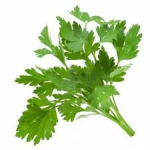 Parsley and peppermint are widely used to flavor food and beverages such as tea. Unfortunately, these herbs can reduce your supply of milk significantly. Still, instead of avoiding them completely, you should use them moderately. At the same time, monitor your milk supply after taking foods or beverages that contain these herbs and adjust your intake accordingly. If you do not want to give up your favorite herbs, consider including Fen-U-Greek in your diet to boost milk supply.
Parsley and peppermint are widely used to flavor food and beverages such as tea. Unfortunately, these herbs can reduce your supply of milk significantly. Still, instead of avoiding them completely, you should use them moderately. At the same time, monitor your milk supply after taking foods or beverages that contain these herbs and adjust your intake accordingly. If you do not want to give up your favorite herbs, consider including Fen-U-Greek in your diet to boost milk supply.
Fish
 While fish is a great source of omega-3 fatty acids and proteins, eating fish while breastfeeding could affect your baby. This is because seafood generally contains significant amounts of mercury, according to the Mayo Clinic. More specifically, mercury can harm the developing nervous system of your baby. If you do not want to give up seafood completely, go for seafood with low levels of mercury such as salmon, swordfish, shrimp, king mackerel, catfish, and shark. Moreover, be careful when eating fish sourced from local water bodies like lakes and dams. The Mayo Clinic recommends paying attention to advisories that come with locally sourced fish. In cases where locally sourced fish do not have advisory information, eat no more than 170 grams per week.
While fish is a great source of omega-3 fatty acids and proteins, eating fish while breastfeeding could affect your baby. This is because seafood generally contains significant amounts of mercury, according to the Mayo Clinic. More specifically, mercury can harm the developing nervous system of your baby. If you do not want to give up seafood completely, go for seafood with low levels of mercury such as salmon, swordfish, shrimp, king mackerel, catfish, and shark. Moreover, be careful when eating fish sourced from local water bodies like lakes and dams. The Mayo Clinic recommends paying attention to advisories that come with locally sourced fish. In cases where locally sourced fish do not have advisory information, eat no more than 170 grams per week.
Spicy Foods
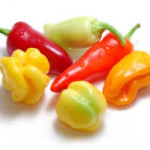 Spicy foods are generally bad for babies. To be precise, they could cause your baby to be fussy for hours after breastfeeding. Some of the spices to avoid include hot sauces and peppers. It is advisable to avoid spicy foods while feeding your baby exclusively on breast milk and re-introduce them into your diet after the baby starts eating solid food.
Spicy foods are generally bad for babies. To be precise, they could cause your baby to be fussy for hours after breastfeeding. Some of the spices to avoid include hot sauces and peppers. It is advisable to avoid spicy foods while feeding your baby exclusively on breast milk and re-introduce them into your diet after the baby starts eating solid food.
Conclusion
According to an article published by the AAP, various studies have shown that breastfeeding could prevent sudden infant death syndrome (SIDS), asthma, and obesity. To ensure your breast milk is good for your baby, you should know which foods to avoid while breastfeeding. Examples of such foods include fish, dairy products, foods that contain wheat, caffeine, alcohol, citrus fruits, garlic, parsley and peppermint, peanuts, and spicy foods. Such foods could affect your baby and cause the baby to develop a rash, hives, become fussy, drowsy, or pass bloody stool.


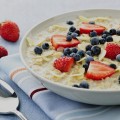









 Facebook
Facebook Twitter
Twitter